Filter by
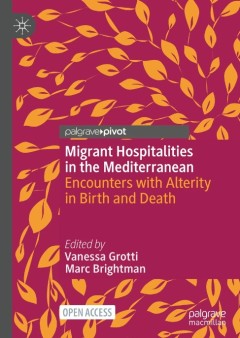
Migrant hospitalities in the mediterranean : encounters with alterity in birt…
This open access book applies insights from the anthropology of hospitality to illuminate ethnographic accounts of migrant reception in various parts of the Mediterranean. The contributors ground the idea and practice of hospitality in concrete ethnographic settings and challenge how the casual usage of Derridean or Kantian notions of hospitality can blur the boundaries between social scales an…
- Edition
- -
- ISBN/ISSN
- 9783030565855
- Collation
- x, 139 p. ; ill
- Series Title
- -
- Call Number
- 304.8 GRO m

Handbook of easy languages in Europe
The Handbook of Easy Languages in Europe describes what Easy Language is and how it is used in European countries. It demonstrates the great diversity of actors, instruments and outcomes related to Easy Language throughout Europe. All people, despite their limitations, have an equal right to information, inclusion, and social participation. This results in requirements for understandable langua…
- Edition
- -
- ISBN/ISSN
- 9783732991952
- Collation
- 623 p.
- Series Title
- -
- Call Number
- 400 LIN h
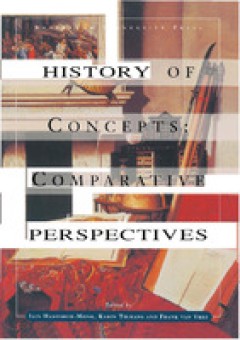
History of concepts : comparative perspectives
Although vastly influential in German-speaking Europe, conceptual history (Begriffsgeschichte) has until now received little attention in English. This genre of intellectual history differs from both the French history of mentalités and the Anglophone history of discourses by positing the concept - the key occupier of significant syntactical space - as the object of historical investigation. C…
- Edition
- -
- ISBN/ISSN
- 9053563067
- Collation
- ix, 293 p. : ill
- Series Title
- -
- Call Number
- 907.2 VAN h

Handbook the global history of work
What is the day-to-day reality for workers in various parts of the world, and how was it in the past? How do they work today, and how did they work in the past? Did workers ever protest? If so, how? These and many other questions comprise the field of the global history of work - a young discipline that is introduced with this handbook.
- Edition
- -
- ISBN/ISSN
- 9783110424584
- Collation
- vii, 604p.
- Series Title
- -
- Call Number
- 174 HOF h

The promise of higher education : essays in honour of 70 years of IAU
This book is a collection of short essays, accessible through open access, which takes the interested reader on a tour across the global higher education landscape. It addresses pertinent themes and challenges in higher education. To mark the 70th anniversary of the International Association of Universities (IAU) and its role in higher education since 1950, experts from around the world share t…
- Edition
- -
- ISBN/ISSN
- 9783030672454
- Collation
- ix, 439 p.
- Series Title
- -
- Call Number
- 378 VAN t
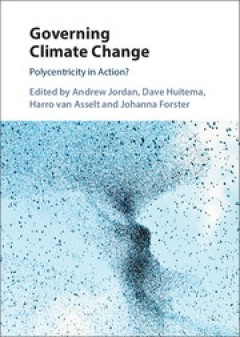
Governing climate change : polycentricity in action?
Climate change governance is in a state of enormous flux. New and more dynamic forms of governing are appearing around the international climate regime centred on the United Nations Framework Convention on Climate Change (UNFCCC). They appear to be emerging spontaneously from the bottom up, producing a more dispersed pattern of governing, which Nobel Laureate Elinor Ostrom famously described as…
- Edition
- -
- ISBN/ISSN
- 9781108284646
- Collation
- xv, 408 p. ; ill
- Series Title
- -
- Call Number
- 363.7387453 HUI g

The DARPA model for transformative technologies: perspectives on the U.S. def…
The U.S. Defense Advanced Research Projects Agency (DARPA) has played a remarkable role in the creation new transformative technologies, revolutionizing defense with drones and precision-guided munitions, and transforming civilian life with portable GPS receivers, voice-recognition software, self-driving cars, unmanned aerial vehicles, and, most famously, the ARPANET and its successor, the Inte…
- Edition
- -
- ISBN/ISSN
- 9781783747931
- Collation
- xix, 485 p. : ind. ; 24 cm
- Series Title
- -
- Call Number
- 338.064 DAR d
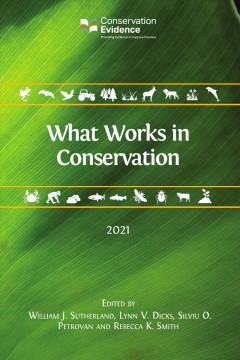
What works in conservation 2021
Does the creation of artificial reefs benefit subtidal benthic invertebrates? Is the use of organic farming instead of conventional farming beneficial to bat conservation? Does installing wildlife warning reflectors along roads benefit mammal conservation? Does the installation of exclusion and/or escape devices on fishing nets benefit marine and freshwater mammal conservation? What Works…
- Edition
- -
- ISBN/ISSN
- 9781800642744
- Collation
- 961 p. : ill. ; 24 cm
- Series Title
- -
- Call Number
- 333.9516 WHA w
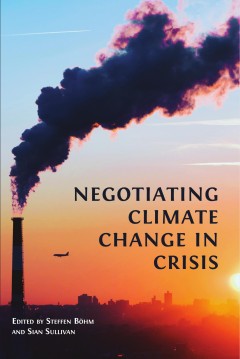
Negotiating climate change in crisis
Climate change negotiations have failed the world. Despite more than thirty years of high-level, global talks on climate change, we are still seeing carbon emissions rise dramatically. This edited volume, comprising leading and emerging scholars and climate activists from around the world, takes a critical look at what has gone wrong and what is to be done to create more decisive action. Com…
- Edition
- -
- ISBN/ISSN
- 9781800642621
- Collation
- xxxiii, 474 p. ; ill
- Series Title
- -
- Call Number
- 363.73874 BOH n

Vulnerable : the law, policy and ethics of COVID-19
Vulnerable examines the vulnerabilities and interconnections brought to light by the pandemic, as well as the legal, ethical and public policy responses. This book exposes the vulnerabilities of individuals, institutions, governance and legal structures, in several countries and worldwide.
- Edition
- -
- ISBN/ISSN
- 9780776636429
- Collation
- xiii, 630 p. : ill
- Series Title
- -
- Call Number
- 362.1962414 FLO a
 Computer Science, Information & General Works
Computer Science, Information & General Works  Philosophy & Psychology
Philosophy & Psychology  Religion
Religion  Social Sciences
Social Sciences  Language
Language  Pure Science
Pure Science  Applied Sciences
Applied Sciences  Art & Recreation
Art & Recreation  Literature
Literature  History & Geography
History & Geography